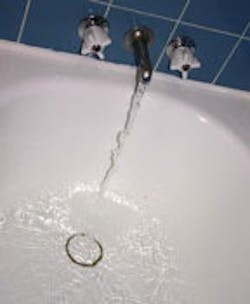City in Iowa First to Build NSF 61 Certified Electrolytic Chlorine Generator
John Hays, superintendent of the City of Washington’s water treatment plant, built and installed the electrolytic chlorination system – the first NSF certified system of its type – for the city’s one million gallons per day treatment facility. Electrolytic chlorination involves adding chlorine to drinking water to destroy disease-causing organisms, such as Cryptosporidium and Giardia.
“A few years ago, we began looking at alternatives to chlorine gas for both safety and cost concerns,” said Hays. “Electrolytic chlorination seemed to offer the lowest overall cost of capital investment and ongoing operational cost.”
The certification demonstrates that the product, when used with NSF 60 certified sodium chloride, will not add harmful levels of contaminants to drinking water. NSF also provides testing and certification of water treatment/distribution products to NSF/ANSI Standard 60 (treatment chemicals) and 61 (treatment and distribution products) for product manufacturers and water utilities.
“NSF has certified many manufacturers of chemicals and chemical-generating equipment so the City of Washington had many options to consider. The City opted to build their own chlorination system, and NSF was able to accommodate their needs and provide an NSF 61 Certification for this custom-built equipment,” said Dave Purkiss, general manager of NSF’s Water Treatment and Distribution Systems Program.
Source: NSF International
